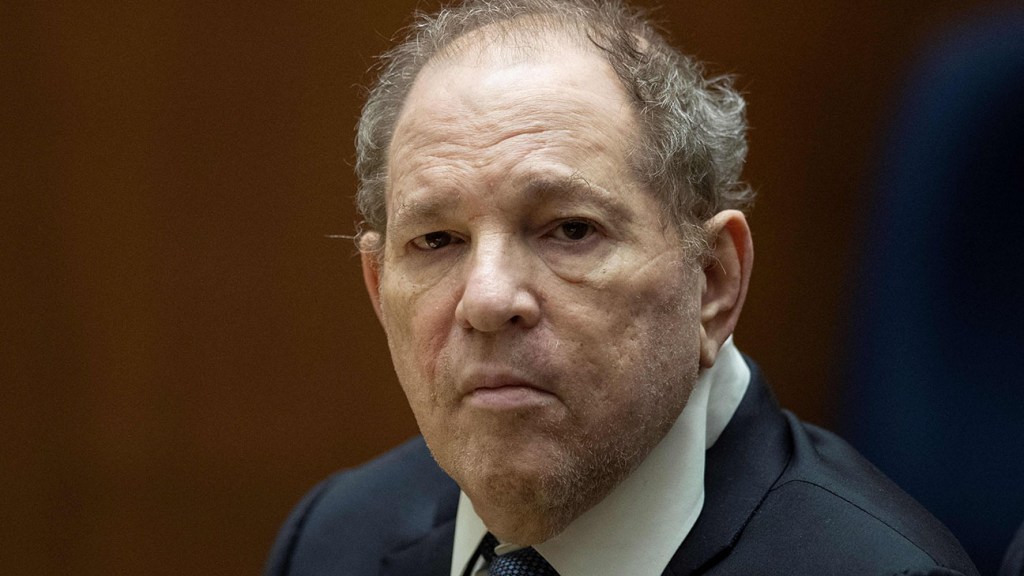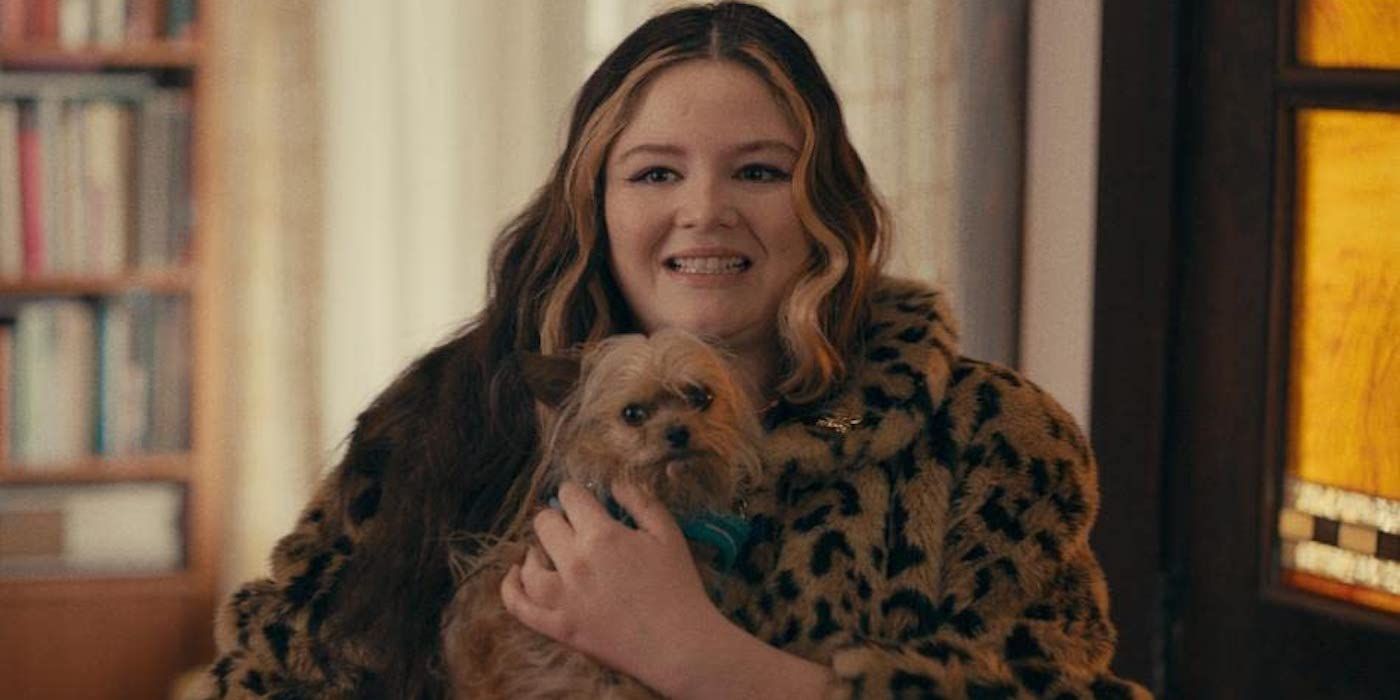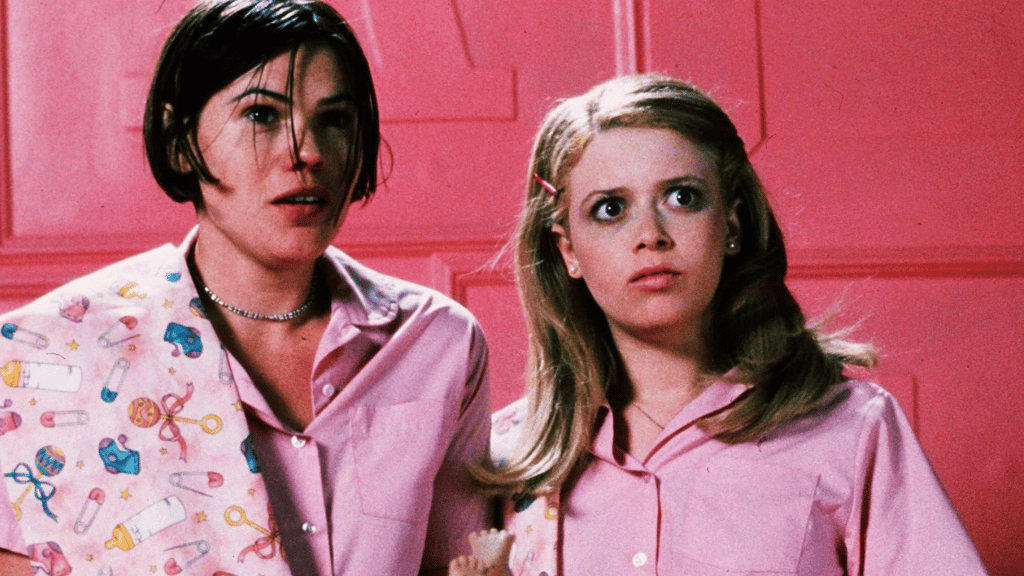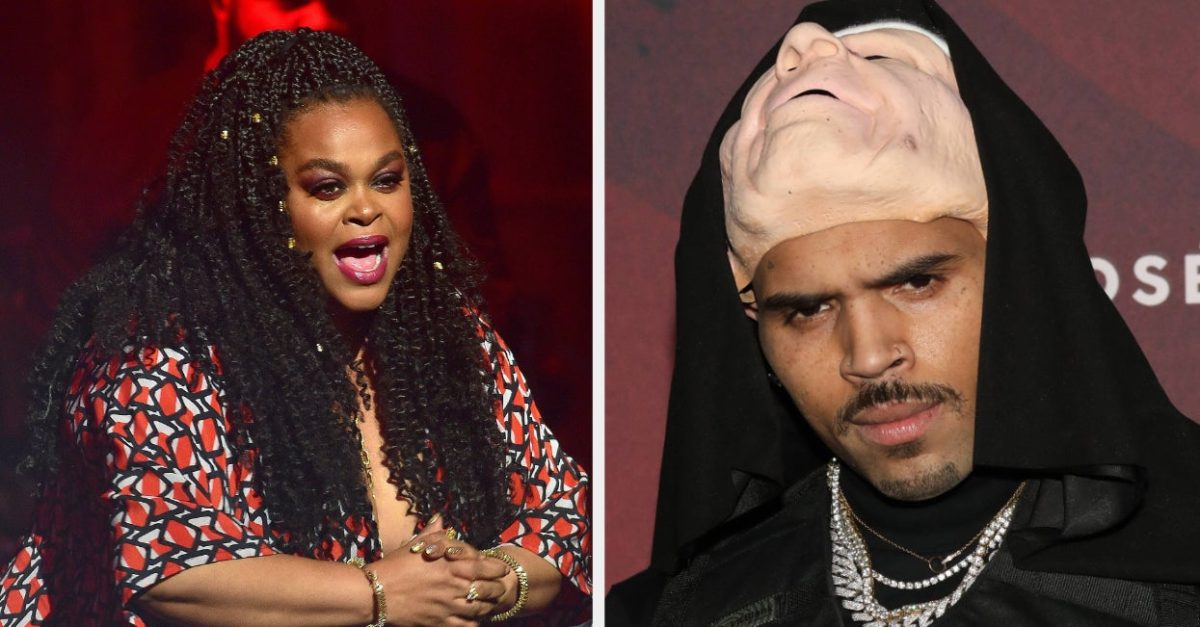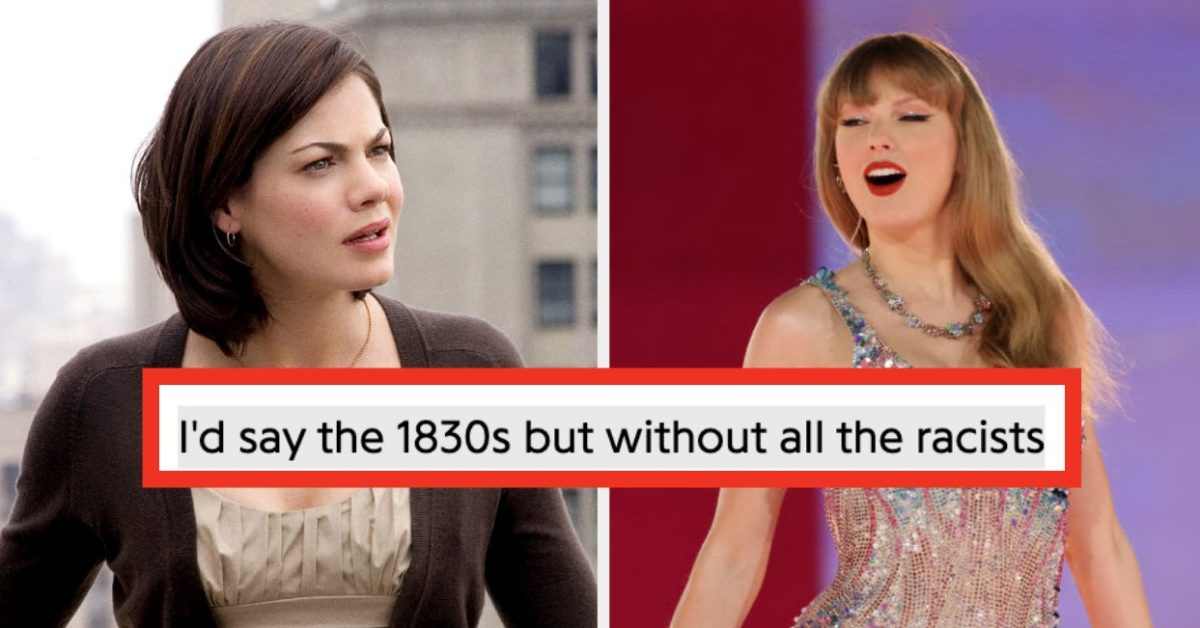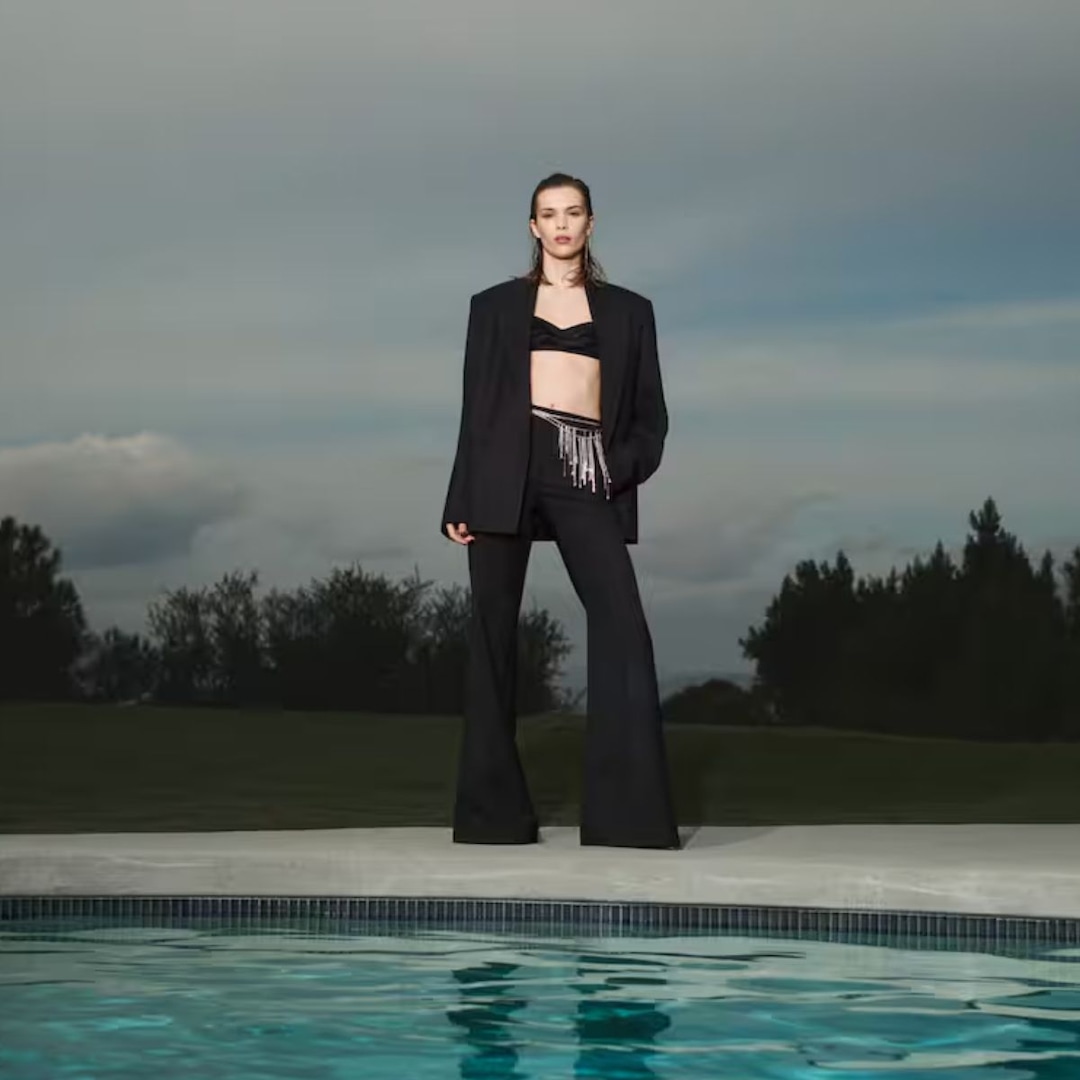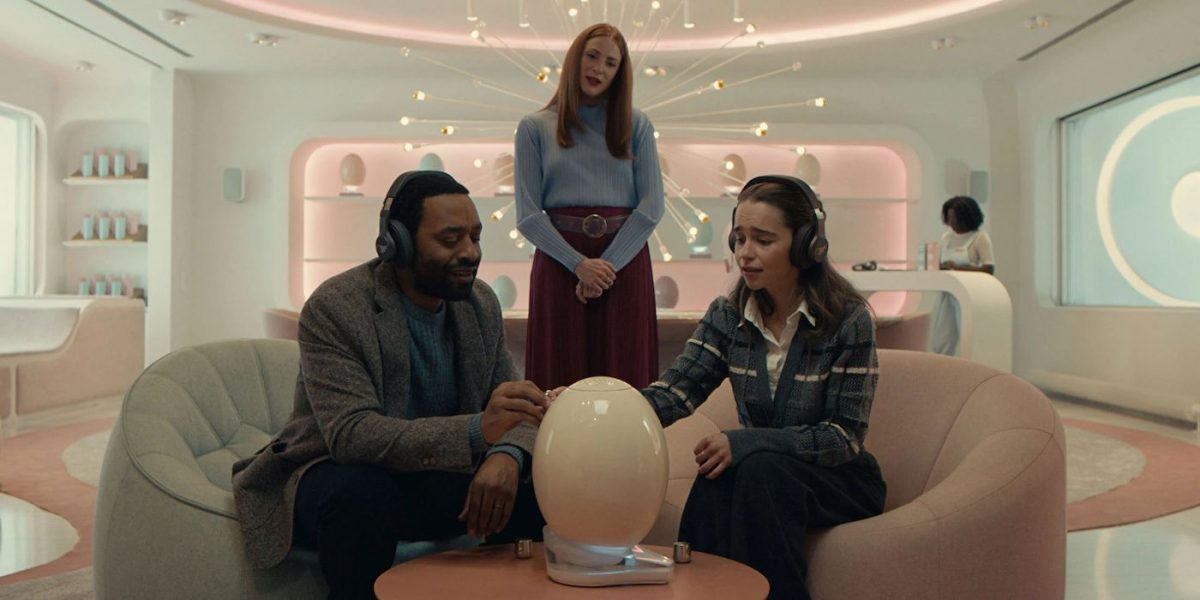
Emilia Clarke Stars in Middling Futuristic Story
Jan 23, 2023
In The Pod Generation, written and directed by Sophie Barnes, Rachel (Emilia Clarke) and Alvy (Chiwetel Ejiofor) are a couple that at one point find themselves debating the pros and cons of natural childbirth versus having a baby in a pod. A burgeoning technology near the end of the 21st century has made it so that more well-to-do individuals can have the entire birth process take place in an external pod. Alvy, a botanist who embraces the old way of nature that the rest of the world has seemingly forgotten, wants to go with natural childbirth, whereas Rachel, who has just been promoted at her tech company, has embraced the idea of the pod.
By the end of their argument, Rachel states that this is an argument of packaging versus content—that it doesn’t matter how the baby comes, as long as the ends are the same. Similarly, The Pod Generation is an impressive packaging, a fully realized world that is always a spectacle to behold, be it the new technology right down to the fantastic costuming, yet the content itself isn’t enough to sustain this narrative.
Like Barnes’ 2009 film Cold Souls, The Pod Generation centers around a fascinating technology that doesn’t have the story to back it up. The Womb Center is a company that allows people to customize their birthing experience. They can choose the sex of the child, feed the fetus through an app, choose what types of “flavors” they’ll like later in life, and more. The parent(s) can also carry around this baby in an egg, complete with a carrying case and light-up stand. By taking the physical toll off of the parent, they are free to continue their lives the way they want, while also bringing a new life into the world after nine months.
With Rachel and Alvy’s different takes on the world around them, The Pod Generation becomes a question of which is better: not embracing technology in any way, or theoretically becoming too reliant on it for everything. On a grander scale, The Pod Generation is attempting to show both how pregnancy affects both a father and a mother in different ways and how this type of birthing process could alter the gender roles within this process, while also trying to make an absurdist commentary on the future of technology. Barthes’ story mostly underwhelms at both.
RELATED: Thank You, Chiwetel Ejiofor for Refusing to Sleepwalk Through Blockbuster Movie Roles
At times, it seems as though Barnes is coming close to saying something about this process that goes deeper than surface level. We see the difficulties of having a baby in the workplace; a group of picketers fighting against The Womb Center’s practice; and we learn of AI’s complete disregard for the importance of dreams within humans. But these are all threads that show promise that never comes to fruition. Beyond the technology inherent in this process, this is a fairly standard story of the struggles and insecurities a couple would have anticipating the arrival of their first child.
Meanwhile, the tech side of this story is almost too silly to be taken as a serious threat in our near future. Personal assistants, from desktop AI to computerized therapists, feature a gigantic floating eye that stares at the user, and the idea that the majority of people think virtual trees are just as important as real ones always makes Alvy seem like an old man complaining about how “back in my day.” The Pod Generation begins with an intriguing take on the future of technology, as we see the home of Alvy and Rachel come to life, addressing their needs in different ways, and how useful, but also terrifying, this next step in techno-evolution could be. But the more the film attempts to explore this aspect, it becomes less of a commentary and more of a collection of half-considered ideas.
This leads to two hours of a curious, albeit often ridiculous, technological future that isn’t fully explored in any real way, and a look at pregnancy that never goes beyond the surface. The result is a film that drags itself through the motions, all while thinking it’s saying something more important than it really is. Which is a shame, because this film is technically gorgeous to look at. The beautiful cinematography from Barnes’ frequent collaborator Andrij Parekh (Blue Valentine, Half Nelson) and the incredible set design always draw the eye to something in this world, even when the script falters.
However, despite all this, the performances here are also quite good. Clarke is particular is quite charming, as this might be her best film role so far, and Ejiofor, as always, knows how to elevate every scene he’s in. Watching these two together is always a delight, even if the script itself isn’t always there to support them. Also excellent is Rosalie Craig, who plays Linda Wozcheck, who helps the couple learn about the process at The Womb Center. Craig plays this role with always the slightest amount of menace under the surface, and with a sort of ambivalence towards how babies were made in the past, to make ready for this new future.
The Pod Generation ends with a thud, leaving the audience to question what the purpose of this endeavor even was. There’s the intent to make great points about the future of technology and the experience of childbirth, but Barnes’ script never quite gets to any real innovating point on either matter. By the end of The Pod Generation, it becomes clear that in the battle between packaging and content, packaging has won.
Rating: C
Publisher: Source link
Jill Scott’s Chris Brown Tweet Faces Backlash
*deep sigh* In times like this, I wish Jill would've remembered and practiced her own lyrics, "Maybe we could just be silent." If you or someone you know is in immediate danger as a result of domestic violence, call 911.…
Apr 25, 2024
Skai Jackson Reveals Where She Stands With Her Jessie Costars
After starring as brainy Ren Stevens for three years on Even Stevens, bringing the titular Kim Possible to life, and starring opposite Hilary Duff in the 2002 DCOM Cadet Kelly, Christy Carlson Romano took to Broadway for a 31-week run…
Apr 25, 2024
Taylor Swift Lyrics About 1830s Has People Really Confused
taylor swift: the old world was misogynistic and racist, but people are blinded by aesthetics and nostalgia. in reality i would’ve hated being theretwitter users: she’s racist— who’s afraid of little old elin? (@tsignelin) April 19, 2024 Disclaimer: This story…
Apr 24, 2024
Victoria Beckham’s New Collaboration With Mango Is as Posh as It Gets
We independently selected these deals and products because we love them, and we think you might like them at these prices. E! has affiliate relationships, so we may get a commission if you purchase something through our links. Items are…
Apr 24, 2024

